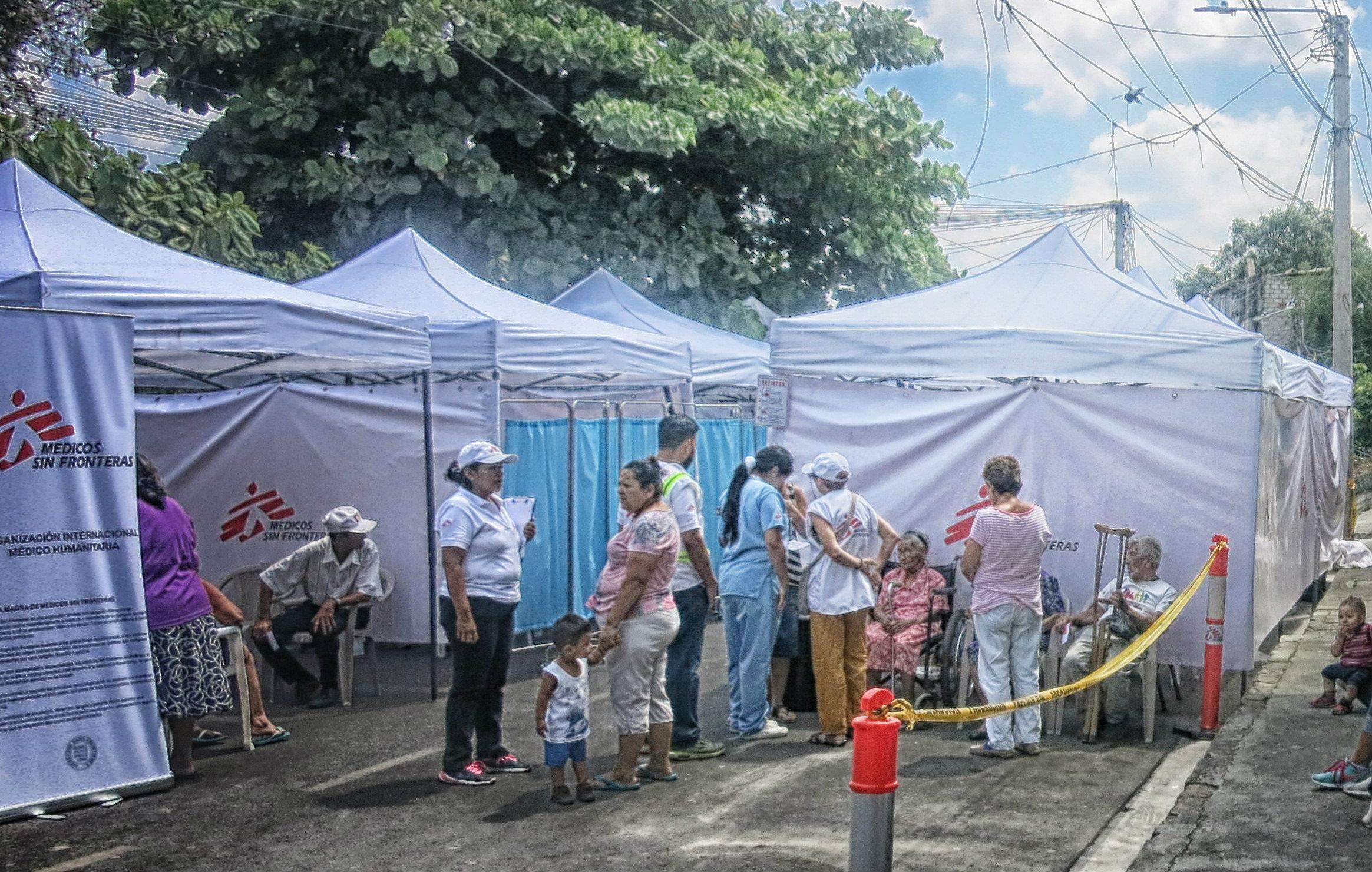In El Salvador, widespread insecurity caused by conflict between gangs and security forces has taken a heavy toll on people’s health and jeopardized access to care. In response, Doctors Without Borders/Médecins Sans Frontières (MSF) has launched new health initiatives in the capital city of San Salvador and nearby Soyapango.
“The people to whom we provide care are afraid of being attacked when they travel to health facilities—not to mention the mental health impact of the widespread fear,” said Stéphane Foulon, MSF general coordinator in El Salvador. Working closely with the Salvadoran Ministry of Health, MSF mobile teams offer general medicine, sexual and reproductive health services, and clinical psychology to people who otherwise cannot access health facilities, while social workers perform follow-ups and refer patients to other institutions. MSF has also launched a comprehensive mental health initiative that includes community work and health promotion activities, and offers clinical psychology services at family health clinics.
MSF’s 54-person multidisciplinary team in El Salvador includes general practitioners, nurses, social and clinical psychologists, social workers, logisticians, managers, and support staff. They work in communities and settlements in District 6 of San Salvador (Tinetti, Concepción, El Paraíso, San Juan Bosco, and Barrio Lourdes) and the northern area of Soyapango (Bosques del Río, Las Margaritas and Río Las Cañas).
We are also adding services to include Reparto La Campanera in Soyapango and the San Juan Bosco community in San Salvador and exploring the possibility of expanding into other areas to provide care to migrants, refugees, and deportees in El Salvador.
MSF first worked in El Salvador during the armed conflict of the 1980s, offering primary health care services. MSF also participated in the emergency responses to Hurricane Mitch in 1998, the 1986 and 2001 El Salvador earthquakes, and Hurricane Ida in 2009.




